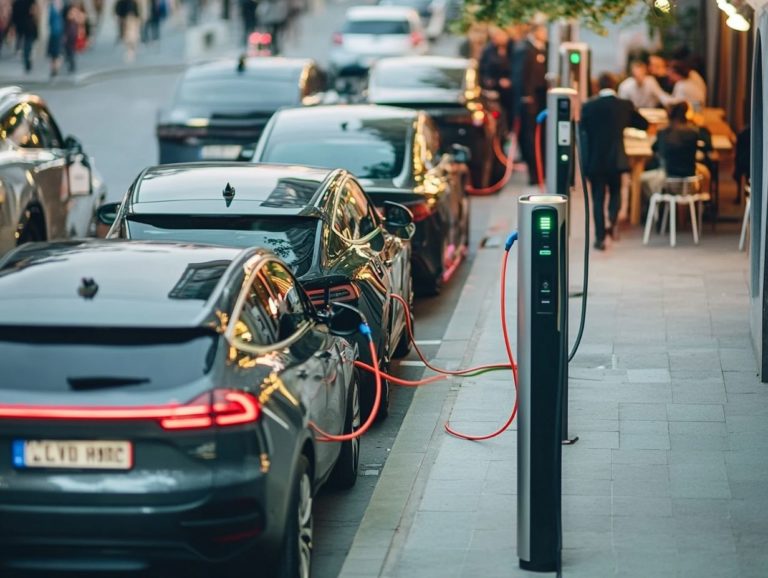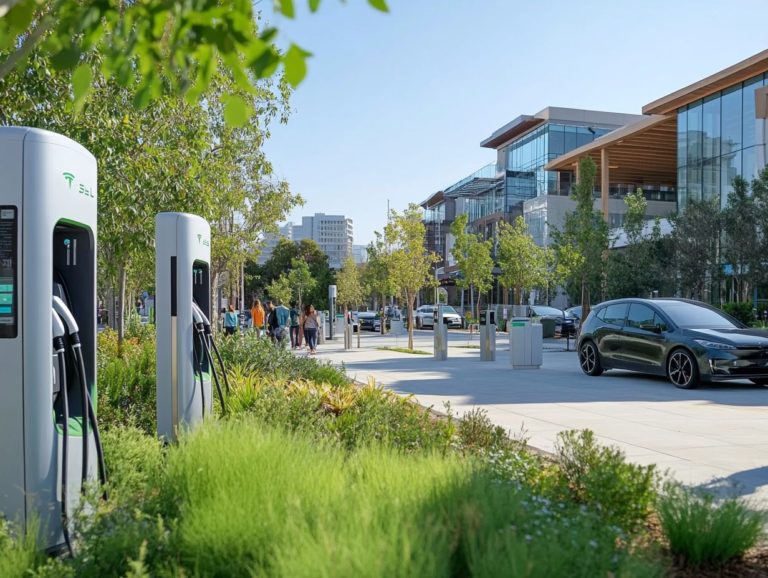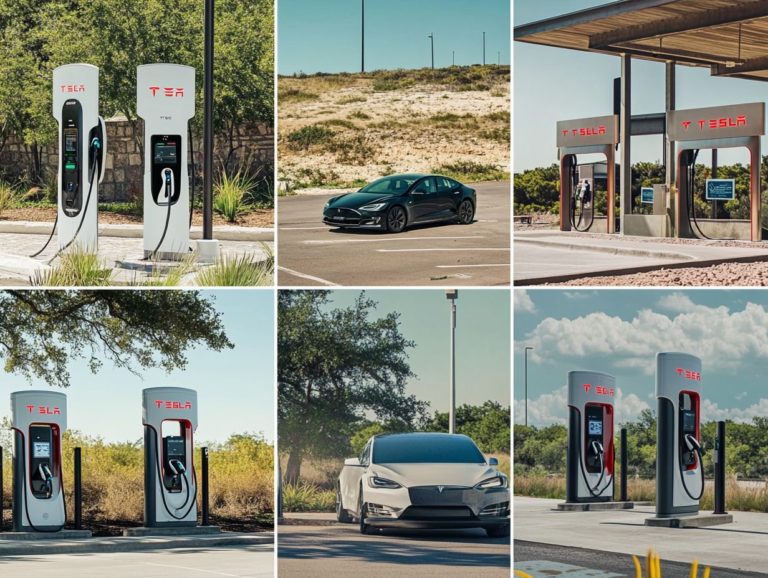EV Charging Costs: What You Should Expect
As electric vehicles (EVs) gain traction in the automotive landscape, grasping the costs tied to charging them becomes essential for both current and prospective owners.
This article delves into the myriad factors that influence your charging expenses, from the various charging options available such as Level 1, Level 2, and DC Fast Charging to the methods you can use to calculate these costs accurately.
It also examines additional expenses, including installation and maintenance, while offering practical tips to help you save on charging.
Prepare to navigate the realm of EV charging costs with confidence and ease!
Contents
Key Takeaways:

- Expect charging costs to vary depending on factors such as location, time of day, and type of charger.
- Choose the most cost-effective charging option for your needs, whether it’s Level 1, Level 2, or DC Fast Charging.
- Use online calculators or mobile apps to estimate charging costs and consider installation and maintenance expenses when budgeting for EV charging.
Understanding Electric Vehicle Charging Costs
Understanding the costs of charging an electric vehicle (EV) is crucial for both current and prospective owners, as it significantly affects the financial aspect of EV ownership. The expenses related to charging can fluctuate considerably, influenced by various factors such as electricity rates, charging speed, and the overall energy efficiency of the vehicle.
By grasping these elements, you can make informed decisions that align with your budget and driving habits, particularly when planning a road trip or choosing home charging solutions.
Factors that Affect Charging Costs
Several factors impact the charging costs associated with electric vehicles, making it essential for you to understand these variables to manage your expenses effectively.
Electricity rates can vary significantly based on your geographical location. Some regions enjoy lower energy tariffs due to favorable local economic conditions and infrastructure, while others face higher costs stemming from limited resources. These rates often fluctuate throughout the day, so charging during off-peak hours can lead to notable savings.
Your vehicle’s battery capacity also plays a critical role in determining overall charging expenses; larger batteries typically require more energy, which can affect your costs. Additionally, charging speeds vary among Level 1, Level 2, and Level 3 chargers, influencing the time taken and, consequently, the expenses incurred.
Commercial charging stations may implement dynamic pricing models that adjust rates in real-time based on demand, adding another layer of complexity to the cost landscape you navigate as a driver. By understanding these elements, you can optimize your electric vehicle ownership experience.
Types of EV Charging
Electric vehicle charging comes in several types, including Level 1, Level 2, and Level 3, each designed to meet distinct user needs and varying charging scenarios.
Level 1 charging typically employs standard household outlets for a slower charging experience, making it perfect for overnight charging at home.
On the other hand, Level 2 chargers, commonly found at public charging stations and commercial spots like Tesla Superchargers, deliver faster charging speeds ideal for those quick stops during your road trips.
Finally, there s DC fast charging (Level 3), which offers the quickest recharge, enabling you to swiftly power up on longer journeys.
Level 1, Level 2, and DC Fast Charging
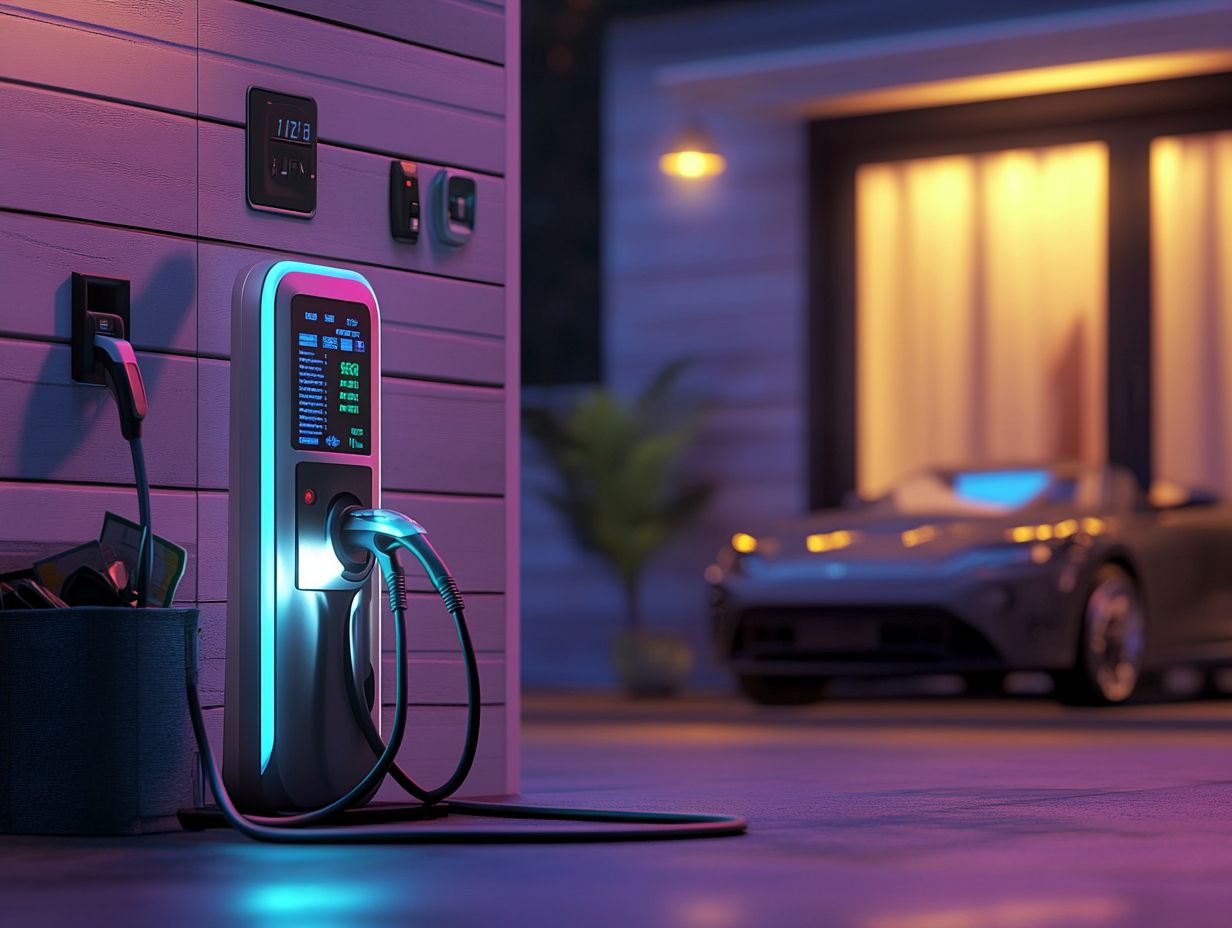
Level 1, Level 2, and DC fast charging are the three main types of electric vehicle charging. Each has unique benefits and speeds to meet your needs.
Level 1 charging uses a standard 120-volt outlet. It s perfect for overnight home use, allowing you to plug in your EV for several hours.
For a quicker charge, Level 2 chargers, like the popular JuiceBox 40, use 240 volts. They charge your vehicle faster, making them great for home or workplace setups.
Level 3 charging, available at networks like EVgo, offers rapid charges that can recharge your EV in minutes. This option is ideal for long-distance travel or busy city driving.
Each charging level has specific installation requirements. This ensures there s a solution tailored to every electric vehicle owner.
Calculating Charging Costs
To calculate charging costs for electric vehicles, focus on key factors like range per kWh, charging time, and total charging expenses. These can vary based on local electricity rates and charger type.
For example, an EV with a higher kWh capacity may have different costs than one with a lower capacity. The federal tax credit for electric vehicles can also play a big role in your savings, so factor this into your cost analysis.
Methods and Tools for Estimating Costs
Using effective methods and tools to estimate EV charging costs can greatly improve your budgeting. Mobile apps like A Better Route Planner and PlugShare help locate nearby charging stations while tracking costs.
These platforms provide insights into charging speeds and local electricity rates. This enables you to make informed decisions that suit your vehicle s needs.
Online calculators enrich your experience by offering cost comparisons across different charging options. This helps you choose the most economical routes and times for your daily commutes.
Additional Costs to Consider
Consider the installation and maintenance expenses alongside direct charging costs. These factors can significantly affect your overall financial commitment to owning an EV.
Installation and Maintenance Expenses

Installation and maintenance expenses for EV charging can fluctuate based on the charger type you choose, where you install it, and your ongoing upkeep needs.
For example, a Level 1 charger typically plugs into a standard outlet, so you ll enjoy lower upfront costs and minimal installation hassle. However, be prepared for longer charging times, which might not appeal to everyone.
On the flip side, Level 2 chargers are designed for home or business use and require a dedicated circuit a separate electrical line that only powers the charger. Their costs can range from a few hundred to several thousand dollars, depending on whether any electrical upgrades are necessary.
If you re considering public charging stations, keep in mind that installation costs can be higher due to permitting and infrastructure integration requirements.
You also need to consider ongoing maintenance costs, which vary by charger type. This includes any fees for using public facilities, such as network membership or per-kWh charges. Regular inspections and software updates are essential for optimal performance and may lead to increased maintenance expenses over time, whether you re using private or public charging setups.
Tips for Reducing EV Charging Costs
Wondering how to save on EV charging? You can significantly cut costs by using effective charging strategies. Utilizing charging apps can help you find free charging stations and take advantage of optimal charging times based on varying electricity rates this enhances your overall cost management approach.
By understanding the nuances of charging duration and speed, you can further refine your expenses, ensuring you fully capitalize on your electric vehicle investment.
Efficient Charging Practices
Implementing efficient charging practices is essential for maximizing your savings and ensuring you get the most value from your electric vehicle charging sessions.
By strategically timing your charges during off-peak electricity rates, you can significantly lower your costs while keeping your vehicle fully powered. Choosing the right charger based on your vehicle’s range and battery capacity is crucial for this optimization process.
For example, using a Level 2 charger for long trips can help you achieve a quicker charge, allowing you to make the most of your available time.
Ultimately, focusing on energy efficiency not only helps reduce your overall charging costs but also contributes to a more sustainable energy landscape, benefiting both you and the environment.
Alternative Charging Options
Exploring alternative charging options can offer you cost-effective solutions for your electric vehicle, allowing you to meet your charging needs while keeping expenses in check.
By utilizing free charging stations, you can recharge without putting a significant dent in your budget. Tapping into public charging networks enhances your convenience, giving you greater access to power sources during longer journeys.
If you lean toward commercial chargers, understanding their fee structures will equip you to make informed decisions about where to plug in.
You ll find a variety of apps and resources, like PlugShare and ChargePoint, to help you locate nearby charging stations. These tools provide real-time information about availability and pricing, ultimately optimizing your charging experience.
Frequently Asked Questions
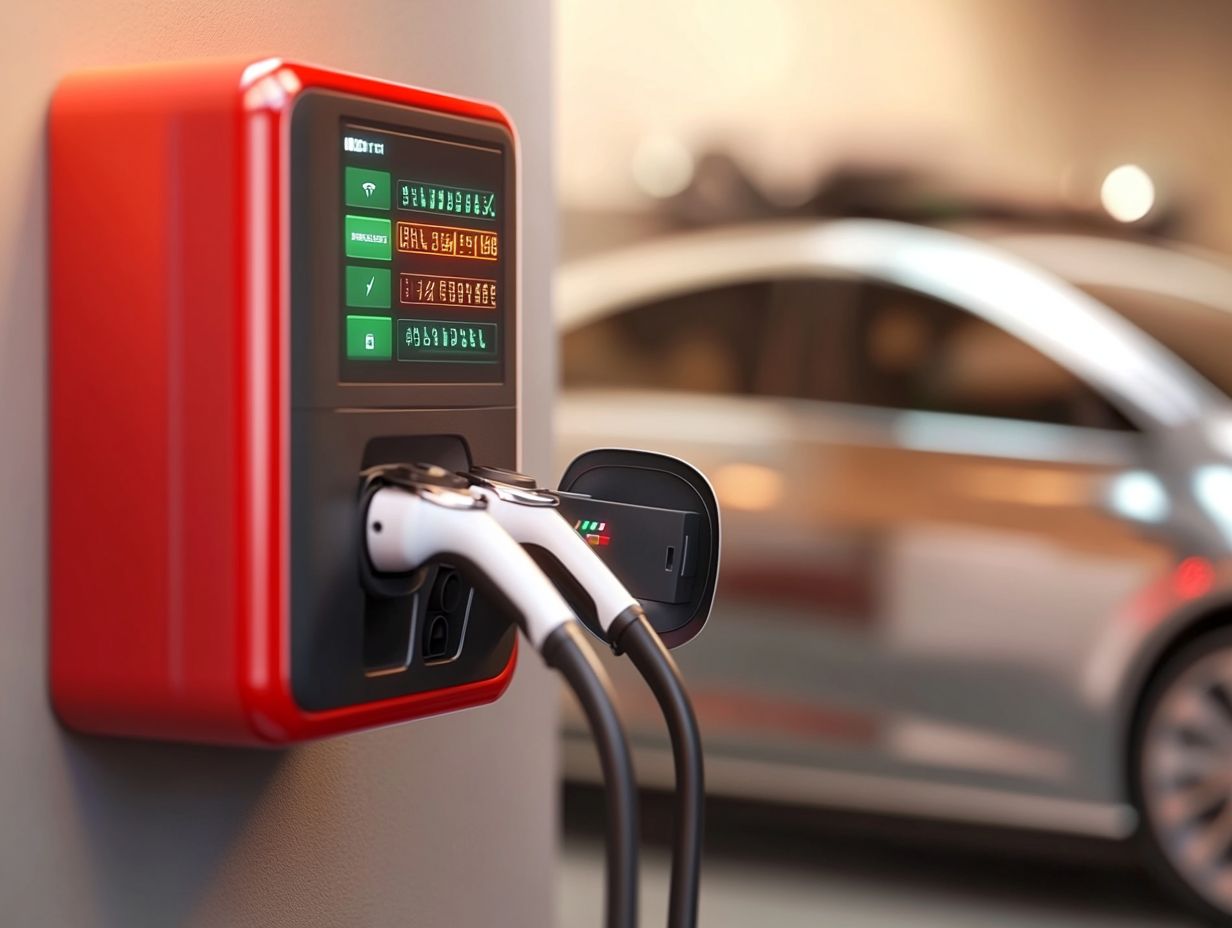
What are EV charging costs and why should I care?
EV charging costs refer to the amount of money you will spend to charge your electric vehicle. As an EV owner, it is important to understand these costs to plan for your budget and make informed decisions about your vehicle usage and charging habits.
What factors impact EV charging costs?
Several factors can affect the cost of charging your EV, including:
- The type of charging station
- Your location
- The time of day
- The energy rate
Charging at home using a Level 1 charger is generally the most cost-effective option, while public charging stations and fast chargers may be more expensive.
What Will You Pay to Charge Your EV?
Charging your EV usually costs between $0.13 and $0.27 per kWh. For a full charge of a small electric car with a 60 kWh battery, expect to pay between $7.80 and $16.20, but to get a comprehensive overview, check out this guide on how to estimate EV ownership costs.
Are There Hidden Costs When Charging an EV?
Be aware of possible hidden fees when using public charging stations. Some may charge a membership fee or a flat fee for each session. Research these costs ahead of time to avoid surprises.
How Can You Save on EV Charging Costs?
Take advantage of lower electricity rates at certain times. Utility companies often offer these reduced rates, which can greatly cut your charging expenses.
Consider investing in a home solar panel system. This allows you to generate your own electricity, potentially reducing or even eliminating your charging costs!
Will EV Charging Costs Drop Soon?
EV charging costs are likely to decrease in the future. With advancements in charging technology and increased competition, charging your EV may become more affordable and accessible for everyone.



